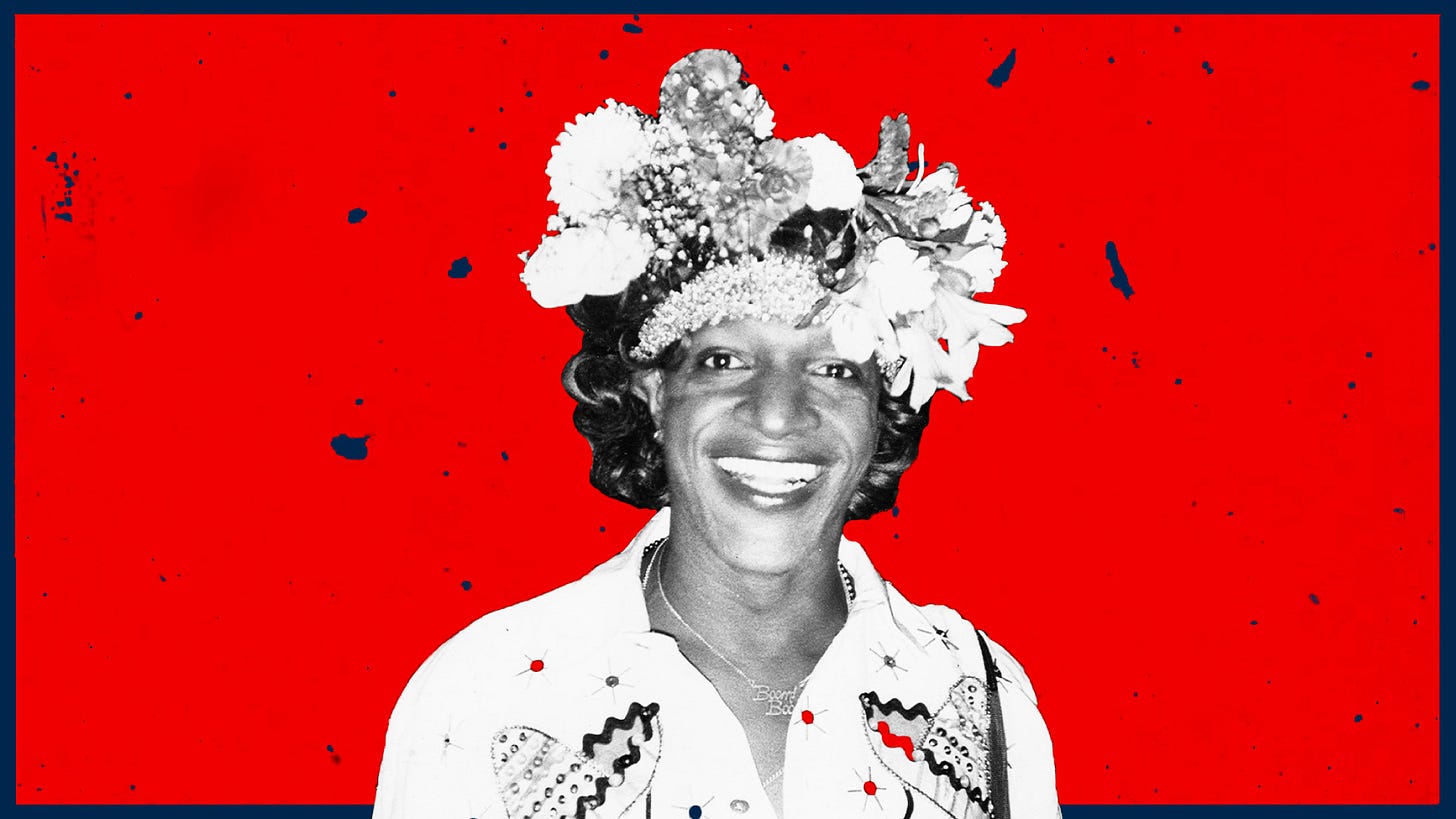Marsha P Johnson: Ordinary Woman with an Extraordinary Impact
Unveiling the Layers: The Unexplored Narratives of Black Identity, Intersectionality, and the Impact of Marsha P. Johnson
Welcome to Let’s Not Be Trash, this post is a part of a larger series titled, “Our Ancestor’s Hands Do Work” It’s a collection of essays and conversations that highlight leaders, ideas, movements, and moments from the rich history of Blackness. You can keep track of all of the essays here.
If you’re new, please consider subscribing, if you’re already on the list and have a few coins, consider upgrading to a paid subscriber. If you have commitment issues but want to contribute, you can buy me a coffee.
If you like my substack and want to discover other great writers, check out this directory from Marc Typo called The Cook-Out
A known but unpopular fact about Blackness is the multitude of ways that it can show up. Before the idea of skin color existed, we were still people, the need to create superiority from one group over another is how the construct of “Blackness” was created. Since then the world has pushed its ideas of the value of Blackness, what people’s relationship to Blackness should be, as well as what the appropriate/approved versions of Blackness and Black Identity are. If we listened to what the dominant narrative told us about ourselves, we would be forever trapped in a lie. For example, for a long time, (and some might argue still today) Black people could only be straight, men or women. Any person who tried to step out of those confines would be punished severely. But that’s the magic of Black people, no matter how hard the world tries to confine us, we find ways to exist in all of our layers.
There have been Gay, Lesbian, and Transgender Black people for as long as people have existed, it hasn’t always been safe for them to be public, but they have always been here. Some were leaders in the civil rights movement, others were musicians. Titles, and accolades aside, these were ordinary people who more often than not were just trying to live in a world that didn’t want them around, and in that pursuit of life, safety, and happiness, they were able to have an extraordinary impact on others. One of my favorite examples of these people was just looking for a good time, and ended up becoming one of the most important people in LGBTQ history, Marsha P. Johnson.
Marsha was born in Elizabeth, New Jersey, and raised by deeply religious working-class parents. While Marsha knew at an early age that she was gay, she didn’t come out of the closet until she moved to New York, where she also began to dress in drag and participate in the LGBTQ community. Marsha’s story is important because she doesn’t fit the textbook story we are told about Black leaders. Marsha was a sex worker, struggled with her mental health, was in and out of jail, and was homeless several times. But at arguably one of the most dangerous times to be out, Marsha didn’t just advocate for herself, she did for others as well.
Marsha is best known for her participation in the Stonewall riots, and depending on who you ask, she either threw the “Shot glass heard around the world” or the brick that may or may not have hit a cop. Her contribution that night is important, but it's only a snapshot of her impact. She also co-founded Street Transvestite Action Revolutionaries with her close friend Sylvia Rivera, a “radical political collective that also provided housing and support to homeless LGBT youth and sex workers in Lower Manhattan.” In later years she helped to spread awareness around HIV/Aids and raised money to support friends and comrades struggling with the virus.
Despite everything, Marsha spent much of her adult life struggling to afford housing, and the basic resources to survive. At the time of her death, people outside of New York's LGBTQ community likely had no idea who she was. She doesn’t have any famous speeches, there weren't any high-profile politicians to give her eulogy, and the people she fought for were not considered deserving of empathy, she was just an ordinary person who wanted to live freely, and protect her friends/family. Whether it was by providing housing to gay and trans teens, raising awareness around HIV and Aids, or fighting for trans rights, she was just doing what she thought was right. As a result, she helped to change the world.



Marsha P. Johnson was not a woman.
Stop insulting us!
#WomanAdultHumanFemale♀️
https://www.the11thhourblog.com/post/usa-black-people-used-as-avatars-shields-as-marketing-tools-for-gender-ideology